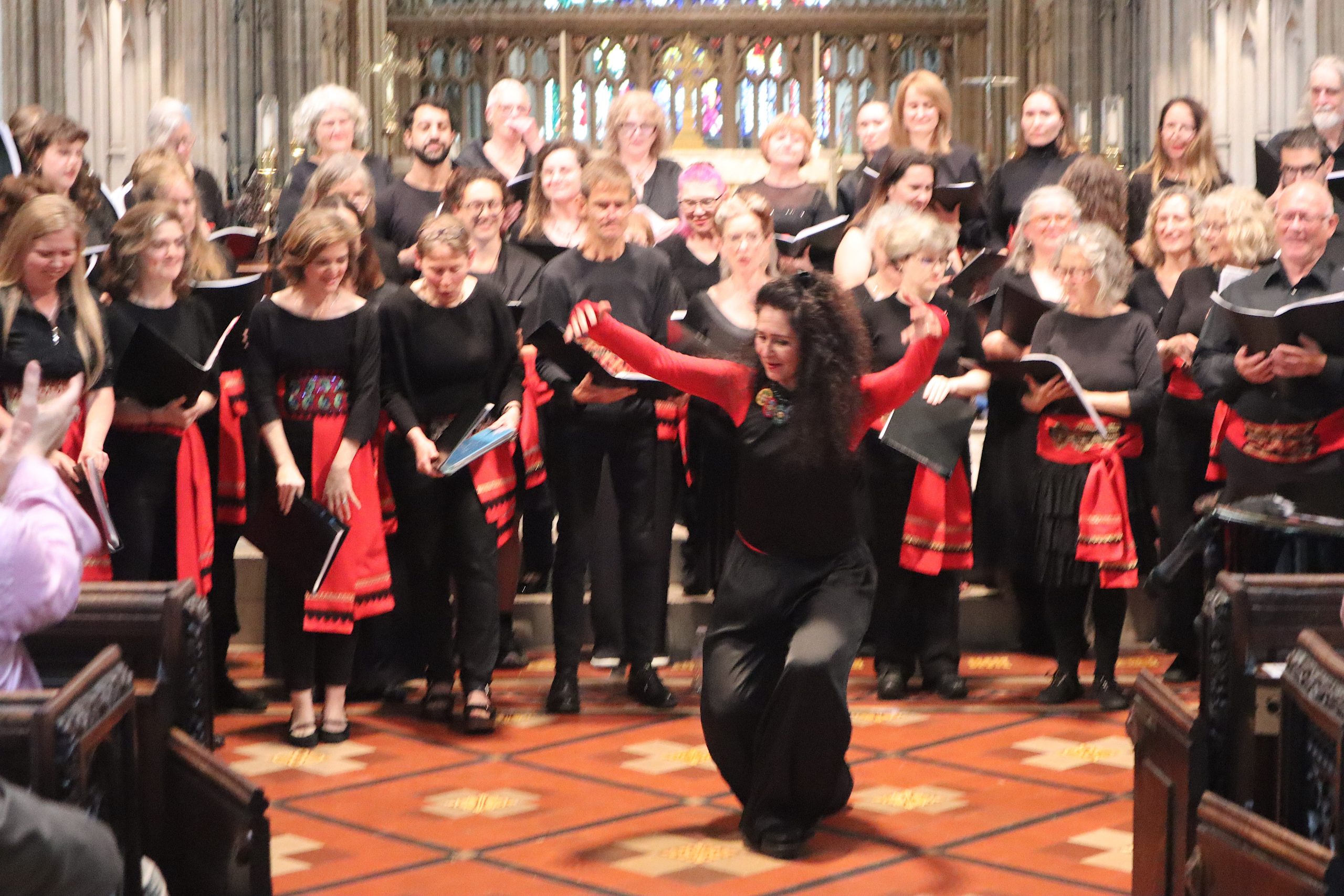Polina works as an educator leading choral workshops internationally. Her choral work is united by the umbrella of The Polina Shepherd Vocal Experience and covers many aspects of vocal music from large scale choirs to smaller chamber groups, from highly arranged and conducted pieces to on spot choral improvisation. Her specially developed teaching and conducting methods are based on specific East European sound, ornamentation, modal experimentation with attention to history and context. Choir leader of the Award Winning Russian choir of Brighton & Hove 2007-2023, The London Russian Choir 2013-2023, Brighton & Hove Yiddish choir and the London Yiddish choir in 2015-2022. Music Director of Caravan Orchestra and Choir: a German - Israeli/Palestinian youth project (2019 - 2025), where Polina experiments with creating musical forms on the spot with a 40+ group of musicians with classical, jazz and Arab music backgrounds. Other past choirs include East European Choir at UCL (London) 2009-2013, Chutzpah choir Brighton 2007-2011, Khorovod, Brighton & Hove, 2011-2012.
Her choral collaborations include WeltMusic Chor (Hamburg, 2024), Söngfjelagið Choir (Reykjavik, Iceland, 2012, 2018, 2019), A Besere Velt Yiddish Chorus (Boston, USA: a joint concert programme and a recording, 2020-2022), choral workshops for Kleztival in Brazil (Rio-de-Janeiro, Sao Paolo in 2011- 2014, 2019), Sheshory’2007-Podilsky (Nemirov, Ukraine, 2006), Klezmer Paris (2005, 2008, 2009), A. Lourie Festival in Basel (2009, 2011, 2012) and countless more.
Polina's current weekly UK choirs are Slavic Voices in London and Brighton.
Polina's choirs are open to all. You do not have to be fluent in any of the languages to join. In each of these choirs a true feeling of community is combined with dedication to the cultural, spiritual and folk roots of its singing tradition. The repertoire ranges from folklore to popular songs, festival music, great classical works by composers such as Tchaikovsky and Rachmaninov, contemporary material - all with cultural specificity to East Europe. Polina's choirs perform regularly and take part in festivals throughout the year, occasionally appearing on the radio or TV. They also frequently combine forces to sing at larger events and for recording sessions, collaborate with guest musicians and bands.
150 Voices - a unique programme of Russian & Yiddish songs with groups or choirs with a lead singer of a Grammy winning The Klezmatics (USA). Here is how it works: we come to your town, teach a workshop and then put a public performance together. This can be with an existing choir, several choirs brought together or a group of people who come together just for the event. Workshop can be anything from 3 hours with an existing choir to a full weekend. The original programme is a recording with five choirs in the UK and USA: 150 voices. Contact us for more information.
Here are some videos of Polina's choir work
“A mesmerising sonic journey through Eastern Europe’s rich musical heritage, the concert was a vibrant blend of heart-warming, uplifting, and classical tunes. Every singer poured their soul into the performance, creating an unforgettable experience. At the heart of it all, Polina's brilliance and passion drive this exceptional ensemble, turning music into pure joy for both performers and audience alike.” - G.S, audience member in Brighton, March 2025.
